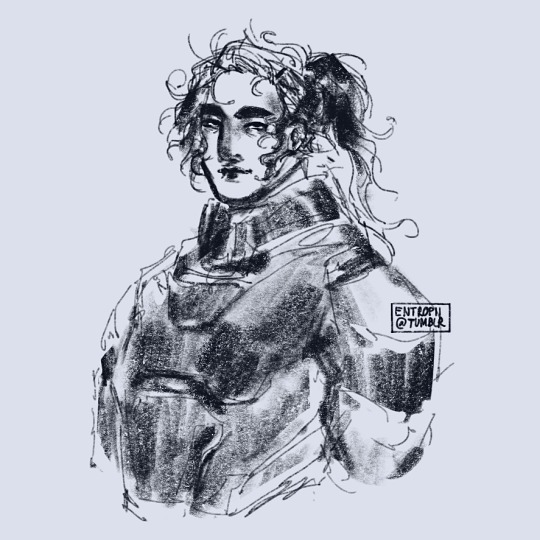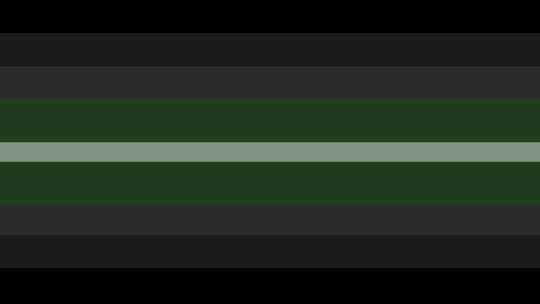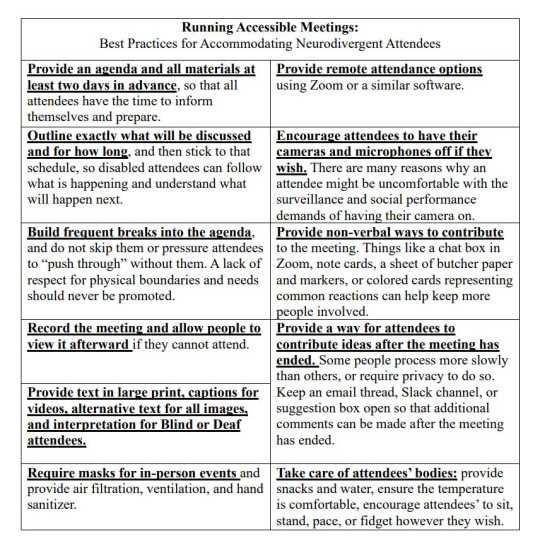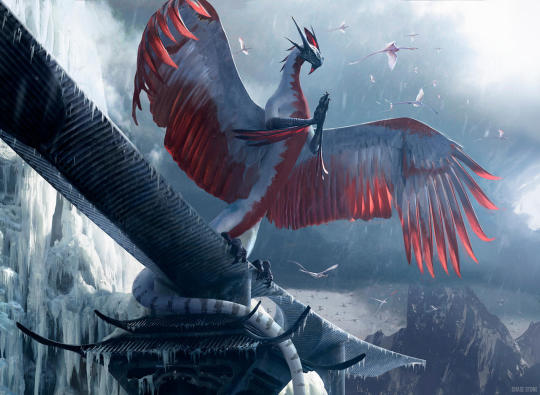#neuro-orientation
Text


flag id: a flag with 5 stripes, which are dark faded indigo, faded orangish-red, yellow, green, and dark green. end id.
banner id: a 1600x200 teal banner with the words ‘please read my dni before interacting. those on my / dni may still use my terms, so do not recoin them.’ in large white text in the center. the text takes up two lines, split at the slash. end id.
attrautigen: when one's autism affects how they feel about attraction and gender
[pt: attrautigen: when one's autism affects how they feel about attraction and gender end pt]
for @sqirtle! this is essentially a combination of auti- orientations (ex: autisexual) and autigender, so i took inspiration from those flags for this one. the term is 'attra' from 'attraction', 'auti' from 'autism', + 'gen' from 'gender'!
tags: @radiomogai, @liom-archive, @neurogenderarchive, @orientation-archive, @macchiane, @genderstarbucks, @sugar-and-vice-mogai, @freezingnarc | dni link
#attrautigen#neurogender#neuro-orientation#my flags#my terms#new flag#new term#mogai flag#mogai term#mogai
63 notes
·
View notes
Text

"#long hair signet supremacy" continues to live in my head rent-free
#project hadea#project hadea mc#my art#signet#feverishly reread the demo at 4am because i'm in my space era#remembered that ivi counting down in the beginning makes me very emotional#remembered the part in ch 3 with the spine prickles making the operative call for ivi also makes me emotional#remembered how ✨ it makes my brain go :^)#ALSO remembered what sensation ✨ is and it is:#the specific crackling sound from a neuro lab course assignment where we were#using a program to simulate detecting the location and orientation of neurons i think???#can't 100% recall that assignment but the !!!! that that sound gave me...#it has haunted me ever since :'^)#to this day i have not found a sound at ALL comparable to the sound that sensor made
143 notes
·
View notes
Text
liemeneromantic

definition-
only being able to feel romantic attraction to your favorite person (fp). this term is exclusive to people with bpd

flag info and id-
the flag is based on the arospec and bpd flags and the symbol is the bpd symbol
[id: a flag with 8 horizontal stripes. from top to bottom they are black, green, teal, blue, light purple-pink, pink, red and black. there is a purple-white bpd symbol (two outward facing opposite half circles with a straight vertical line in between) in the middle of the flag. end id.]
related terms-
this is the bpd equivalent of cruxromantic, which is a term for people with dpd who can only feel romantic attraction to their depended person.
feel free to add the liemene- prefix to other forms of attraction! for example liemenesexual (being ace except for your fp) and liemenenattractional (being anattractional except for your fp).

for anon.
hope you enjoy! please tell me if there was already a term for this.
#key’s new orientation#liemeneromantic#aspec#arospec#bpd#bpd favorite person#orientation coining#label coining#mogai coining#mogai friendly#neuro orientation#neurodivergent#mental illness#mogai#liom
57 notes
·
View notes
Text



since the account @neurorientation is a thing ima post my schizo-spec related flags onto here (only posted them to my flag acc on twt)
they are schizromantic, schizsexual, and schizrose/schizaroace; using schiz specifically since schizo is used a lot for different descriptions of neurosexualities but I wanted one for the specific definition of when your schizo-spec symptoms affect/influence your sexuality (and I havent found anybody use just the schiz prefix rather than schizo)
flag descriptions in alt text
#my flags#flags#schizromantic#schizsexual#schizrose#schizaroace#schizospec#schizophrenic#schizoaffective#schizotypal#schizophreniform#schizoid#schizotypal personality disorder#schizoid personality disorder#neurosexuality#neurosexual#neuroromantic#neurorientation#neuro orientation#neurodivergent#schizo
18 notes
·
View notes
Text
And I’ve heard my next rotation is hell and they’ve been having fourteen hours days
#and I’m also largely clueless when it comes to Neuro stuff#and they except us to be full prepared and ready to go and they’re not even doing an orientation#so at some point I have to find the energy and time to review an entire semesters worth of notes#can I go back to last week or my optho rotation
4 notes
·
View notes
Text
Anyways ive been having a lot more headaches and like yeah its kinda the territory w having major head trauma and epilepsy but ive gotten quiet a lot in the past few weeks way more than the past few months and they get debilitating and if it happens out and about it sucks cause they last incredibly long and im essentially hostage to the whim of it and if itll go away or if my meds for it will help or not and itll ruin what im doing and i cant help it or fix it
#and like ill have to stop and sit or leave and they get bad and i cant think and itll rub my eyes or my head and im getting flustered#and my face gets itchy and sometimes im in near tears cause it hurt and i look miserable and i hate it if im in public cause it feels like#look at this girl having a near meltdown how rude and inconsiderate if im with people#and like i said its debilitaing i cant think i feel awful sometimes i can bearly get words out so it seems like im getting mad or short#with people and its like no sorry my head is abt to explode im not trying to be mean or snobby but i feel like it comes across that way#but i simply dont know what to do and im so tense and it hurts and i could probably snap a brick im half and like sometimes its like just#like a hazard like ill be tripping over my own feet or my instinct is to close my eyes and like the other night when i went rollerskating it#came on and i just shut my eyes and i couldnt get myself to skate straight and i felt like i lost my sense of orientation in space and thats#just straight up unsafe for everyone which is why im kinda like avoiding learning to drive as well#idk im gonna bring it up with my neurologist it just sucks in general but also sucks cause im so young w at times very serious neuro issues#and nerve issues and like i know people have it worse or other things just as bad or worse and i feel like sometimes i complain abt it#too much and i shouldnt or that i shouldnt be upset with it but it makes me very upset
1 note
·
View note
Text
Keep Unnecessary Meetings to a Minimum
“Don’t attend unnecessary meetings,” advises Jersey, an Autistic activist in the San Francisco Bay Area.
Jersey has been on the front lines of numerous pro-Palestinian actions in the past several months, serving as a medic during the #BlocktheBoat action to delay the shipment of munitions to Israel, shutting down the Oakland Federal Building, and blocking the Bay Bridge, an action for which he was arrested and charged with false imprisonment (among other laughable charges) by the San Franciso District Attorney. Since the siege on Gaza began in October of last year, Jersey has been living and breathing for the Palestinian cause. Yet even he has limits.
“Tell [fellow organizers] that your capacity for meeting, especially in real life, is low,” he says. Instead of having to speak at length with organizers about your interest in getting involved, see if you can articulate your own role within the movement. That way, you won’t have to be “managed” as much.
“For example, if you’re a photographer, tell people that and then demonstrate that you can show up relatively independently, take great photos, and then show them with the group,” he says. Once you have proven yourself to be reliable and competent, you can skip meetings without facing as much criticism.
Many organizing spaces are oriented around neuro-conformist standards of what socializing and planning for an event must look like. Non-Autistic people generally process new information socially as part of an ongoing dialogue, whereas many Autistics prefer receiving all the relevant facts in a single, linear document they can read and process on their own. Many activists also enter a movement with intense emotional needs, and wish for others to bear witness to their suffering and share how they are feeling too. This means that those of us who find socializing and emotional processing to be draining will have to advocate for ourselves.
“We can remind organizations to be intentional about what does and does not have to be a meeting,” says Aeryn, another organizer. “Sometimes all you really need is an online survey, a memo, or a thread where people can ask questions online.”
If you can, tell meeting organizers that you are unavailable to meet often, but that you will listen to meeting recordings or read the agenda on your own time, and then communicate through email or private message to indicate that you have. Depending on how much you trust an organization and its leadership, you can either explain directly that you cannot process information in real-time easily because of your disability, or you can simply say you’re busy with school, work, or family obligations.
Operating independently may require being strategic in the roles you take on within an organization. Jersey says: “If you’ve never done security but want to do security, you will have to do a lot of training and meeting with people. But if you’re already a trained medic and have some type of credential… you can probably just tap into a medic chat and sign up for events as they arise.” This, in fact, is what he’s done.
Of course, it will be sometimes be necessary to get to know other members of your organization of choice, express your own perspectives to the group, and receive updates through some form of meeting. However, there are still many accommodations you can request to make those meetings more accessible:
Push for Accessible Meetings
When an activist movement is new or its resources are limited, its meetings may tend to be urgent, somewhat disorganized affairs, rife with lots of thinking out loud and amorphous brainstorming and possessing little in the way of an agenda.
Autistic people typically find it very hard to contribute to such meetings, because the flow of conversation is unpredictable and confusing, and most of us struggle with knowing when it’s appropriate to jump in and offer a comment. The constant flux in conversation topics is exhausting for us to keep up with, as are all the social and emotional undercurrents bubbling beneath what’s actually being said.
After the meeting is over, we may have almost no recollection of what was shared, because we were putting so much energy into masking and wearing our “listening faces.” Critiques and questions may occur to us hours after the discussion has ended, after we’ve had some time alone to digest and reflect. Even if we are physically present within a space, we are pervasively excluded when meetings are conducted in such an unstructured, overwhelming way.
Thankfully, all of this can be avoided. Here are some of the accommodations that organizing meetings should provide in order to maximize their accessibility — not just for the sake of Autistics, but for anyone who struggles to process verbal information quickly and form their own immediate verbal responses to it on the fly:

The full essay and toolkit of resources is free to read (or have narrated to you!) at drdevonprice.substack.com
87 notes
·
View notes
Note
Hello! Sorry if you’ve posted about this somewhere already/if it’s redundant, but I thought your coinage of “transMad” was very cool and I’m wondering what that term means to you? I’m really happy to see other people talking about madness being intertwined w their gender/transness and looking forward to checking out your reading lists :))
thank you so much for asking about one of my favorite things to infodump about!! rather than rehash a bunch of stuff, if it's okay, I'm going to borrow a few quotes from past!me that i've published in different places // offer you some things of mine to read.
broadly, though, i use transMadness as a way to explore the identificatory, epistemological, methodological, and theoretical implications of an orientation (to use Sara Ahmed's term) toward bodymind noncompliance and self/selves-determination. this orientation refuses to delineate diagnostically between Maddened / transed experiences of the world/our many worlds, and instead takes this shared/overlapping ground as a jumping off point for solidarity and speculation - that is, something that allows us to imagine otherwise worlds / make them manifest through creativity and collaboration.
(Ha, and I claimed i wouldn't talk too much...famous autistic last words)
ANYWAY. here are some clips that might help explain more dimensions of transMadness. note that, in my dissertation-in-progress, i'm focusing on xeno/neogender and/as self-diagnostic cultures among queercrip and transMad internet users. i'm interested in the anti-psych liberatory potential of this digital community work, especially as it centers forms of knowledge and scholarship devalued within Academia Proper, especially because so much of it is made by and for disabled, Mad, queer, trans people, esp. youth. Onward to quotes!
On transMad epistemologies: citation/power/knowledge:
I’ll spend most of this piece looking not at what transMad is, but what it does. First and foremost, transMad cites. Even its name alludes to other portmanteaus: neuroqueer and queercrip being the best-known among them. Many people have offered many different (ever-“working”!) definitions of these terms; today, I offer co-coiner Nick Walker’s (2021) definition of neuroqueer: a verb and an adjective “encompass[ing] the queering of neurocognitive norms as well as gender norms” (p. 196). In terms of queercrip, I also return to its coiner, Carrie Sandahl (2003), who for whom the queercrip (as person and as method/movement) confuses the diagnostic gaze, bears sociopolitical witness, and performs glitchful[4], incongruous, confusing in(ter)ventions into possible community. At base, “queer” and “crip” appear as analogous, reclaimed slurs signifying marginalized transgression. When combined, they describe a loop, perhaps a Möbius strip: crip (ani)mates queer, queer tells-on crip. The specter of crip haunts queer—and even more explicitly, as we will see, trans—and the crip(ped) bodymind holds, moves, and fucks queerly. Who knows where “queer” stops and “crip” and “neuro” begin? Likewise, transMad, whose citational style leaves little room for diagnostic clarity amidst a pastiche of noncompliant text.
On transMad epistemologies: multiplicity (h/t @materialisnt):
They encourage us to remove others’ names from our bodies, to reign in unruly citations, to set “boundaries” which violate Mad, crip ethics of care (see Fletcher, 2019). In truth, any framing of individual authorship in which the body text is “mine” and the citations gesture “elsewhere” belie the inherent interdependence of all intellectual life, and particularly of transMad intellectual life. transMad plural scholar mix. alan moss (2022) argues in relation to the pathologization of multiple systems: “all people, indeed all that exists, is a system that itself is constantly enmeshed in several overlapping and interconnected systems.” In short, I am full of Is, and will continue as many more. Just as disability justice helps us understand all life as interdependent and deserving of access, a transMad approach sees our selves as numerous and fuzzy. We have permission to dispense with the need for tidy texts, with our interlocutors, edits, and iterations either obfuscated entirely or exclusively relegated to a bibliography. transMad citation may thus be considered akin to visible mending[6], creating flamboyantly messy, multiplicitous work that does not seek to pass as objective or discrete.
On the value of (crip) failure and/as "virtuality":
Don’t get me wrong: Zoom PhD work is a failing enterprise. That is to say, it is a queercrip, transMad enterprise, which is to say, it is a beautiful, beautiful project. Mitchell, Snyder, and Ware describe such “fortunate failures” in the context of “curricular cripistemologies.”5 Coined by Merri Lisa Johnson, the term “cripistemologies,” refers to “embodied ways of knowing in relation, knowing-with, knowing-alongside, knowing-across-difference, and unknowing,” ways which frequently exist outside the purview of mainstream academia.6 Curricular cripistemologies, then, refer to an intentional, queercrip deviation from normative pedagogical approaches which trades the corrective impulse of “special ed” and other rehabilitative programs, and offers instead a generative noncompliance.7 That is, rather than trying to identify, isolate, and ameliorate difference, curricular cripistemologies lean into difference as it is experienced by disabled students ourselves, querying how atmospheres of in/accessibility shape normative approaches to education and how the embrace of “failure,” not as a last-resort but as a first choice, poses potentially transformative possibilities.
On transMadness and fat liberation: (for @trans-axolotl's Psych Survivor Zine)
A transMad, fat approach to disorderly eating requires making connections with humility and understanding, and, as I discussed above, engaging in compassionate, critical interrogation of our own anti-fatness.
[...]
A transMad, fat, abolitionist politic is one that makes room. We imagine beyond the cage, even if the details of that imagining are not yet clear. Just as we have carved micro-sites of support within violent digital and in-person contexts, just as we have learned to think about our lifeworlds beyond the paradigm of “recovery or death,” we can also reconceptualize fatness not as the enemy, but as another form of bodymind noncompliance in alliance and/or entanglement with disorderly eating practices. For thin disorderly eaters, this requires us to fundamentally challenge the way we view food and embodiment, even while maintaining a Mad respect for alternative ways of approaching reality.
On xenogenders, virtuality, and self-determination:
It is this very “irrationality” –– the “unrealness,” the “you’ve-got-to-be-kiddinghood,” that is most frequently weaponized against xenogenders, as well as their newly-coined sets of xenopronouns. The perceived and actual virtuality of xenogenders is often placed against the notion of “actuality,” in this case, of “real” (or “practical”) genders and pronouns to be used in one’s “real life.” Disabled activists have rightly resisted the distinction between online and (presumed-offline) “real life,” given that this categorically excludes homebound bodyminds, as well as those without IRL social and support circles. That said, I believe the virtual –– as almost, not-quite, proximite, making-do –– is incredibly useful in thinking about xenoidentities as transMad tools –– particularly, as transMad tools of underground collaboration / co-liberation.
[...]
What if gender was a project we wanted to fail? That is, what if trans- was a process not of getting better, not of moving-toward a bodymind more sane, more straight, and more cisheteropatriarchially desirable, but rather a line of flight on a longer trail to illegibility? Indeed, what if we replaced pathology’s narrow “path” with a trail lighted by the language of our comrades, whose linguistic interventions make and break gender in ways heretofore unimaginable? Xenoidentities, both individually and as a trans-gressive M.O., are fundamental to a broader transMad project of crafted, collective illegibility; intersubjective citation (imagine what it feels like for someone to be the gender that you coined!); and collective care that refuses a politics of cure. Crucially both virtual and digital, xenoidentities are furthermore a manifestation of the power of trans, predominantly disabled digital counterpublics, who overturn the hierarchy which places the IRL-real above the digital-unreal, making unruly, Mad space in which (with apologies to Donna Haraway) a hundred xenoselves might bloom.
On Maddening queer "diagnosis":
In her indictment of all “Kwik-Fix Drugs,” Gray further indicates the practice of forced treatment as in and of itself as a project of violent normalization, regardless of specific target or reason. The intentional ambiguity between her narrative of Madness and her narrative of asexuality disrupt mounting demands for a healthy (sanitized, neoliberal, and consumable) queerness. A Mad ace approach identifies these demands as, indeed, comparable with cis heteronormative notions of sexual maturity and responsibility – the idea that participation in culturally-normative sexual practices is a prerequisite for health (Kim, 2011, 481) and thus, personal autonomy (Meerai, Abdillahi, and Poole 2016, 21). By fusing the “lack of sexual appetite” attributed to her medications for bipolar disorder with her asexuality, Gray destabilizes the binary between healthy-sexual-diversity and unhealthy-psychopathology. She is once again disrupting contemporary queer impulses to dissociate from ongoing histories of pathologization. Here, Mad and queer/asexual activism are as inseparable in text as they are in Gray.
Gray and her comrades collectively refuse both sexuality-as-“rehabilitation” (See Kim 2011, 486) and asexual acceptance predicated upon normative “health” (Kim 2010, 158) – that is, they Madden asexuality. Twoey, in her own voice, remixes the sources of her own pathologization, staggering the supposedly-divine pronouncement of the DSM across pages and bookending its extracts with her own writing and art. In this undermining of the DSM’s epistemological polish, Gray disrupts the domination of written prose over poetry and visual art, while also critiquing the role of the DSM in commercialized health “care.” Her zine opens with the lines “sex sells and sex is sold / sex was being sold and i didn’t buy” (Gray 2018, n.p.). Gray indicates a pathology perceived not only in a refusal to practice sex, but also in a refusal to buy (into) it. After all, a refusal to buy into existing sexual paradigms is for her also a refusal to buy into a feminized reproductive mandate.
90 notes
·
View notes
Note
Does Hyrule mind teaching how to assess a patient??👉👈
"You... want to learn how to assess patients?" Hyrule asked hesitantly.
Wild shrugged. "What if I want to be an EMT?"
"You also said you wanted to be a chef in the hospital."
"I can do both, you know."
Hyrule laughed. "I suppose so. Well... we'll need a patient for this to work."
Wild immediately snatched Sky, who yelped as his friend snaked a hand around his wrist. "Sky's the patient, heaven knows he needs to be looked over anyway."
"Look who's talking, Mr. I-Have-Seizures-and-Don't-Tell-Anybody," Sky grumbled as he was manhandled to sit between the other two.
"Well, everyone knows now."
Hyrule and Sky gave Wild a scalding look. Adequately apologetic, Wild shrugged sheepishly.
"Anyway," Hyrule sighed, shifting his focus to Sky. "Assessments come in different forms. You've got a primary and a secondary assessment. Primary is kind of a general overview and checking for life threatening stuff, secondary is in-depth on what the issue actually is. Make sense?"
Wild nodded.
"Great!" Hyrule continued with a smile. "Okay. Sky's our patient. Sky, you got shot once, right?"
Sky nodded, and Wild balked. "He what?!"
"It was a long time ago," Sky waved a dismissive hand.
"Okay, so that's our scenario," Hyrule said, standing. "We're dispatched for a 21-year-old male with a GSW--"
"That means gunshot wound, right?"
"Yeah. GSW, conscious patient. That's all we've got. So, you get on scene, and the very first thing you do is check for scene safety. If the scene isn't safe, we're not going in. First thing you're taught in EMS - your own safety comes first, because if you're shot you can't help the patient. It's you, your partner, then the patient."
"How often do you actually listen to that rule?" Sky asked, raising an eyebrow.
"That's not what we're learning today," Hyrule waved off easily. It was pretty common knowledge that while he would never put his partner's life at risk, he'd gotten himself into dicey situations before. But he knew how to get himself out of those situations too. "So, we determine the scene is safe. Next, is our primary assessment. The purpose of this assessment is to check for life threatening things, and an overview of major body systems. Neuro status, bleeding, and your ABCs: Airway, Breathing, Circulation.
"The situation is pretty dynamic, like sometimes you walk up and somebody's got an arterial bleed and spurting blood everywhere, your assessment stops right there and you go fix that bleed. But generally you'll have time to do the entire primary assessment."
"Okay, so neuro and ABCs?"
"Yeah. And the good thing is that most of it happens all at once, you know? You walk up to Sky and he looks at you, then boom, you've got a good neuro - he's awake, he's alert. He may not be oriented, but you can figure that out by just talking to him. And by this point you can tell if there's life threatening bleeding. Then it's ABCs - is his airway patent, or open? Is he breathing, and is he doing so normally? Is his skin warm, dry, and normal tone for him? You can literally do al these things by just walking into the room and looking at him for five seconds. The primary assessment is done really fast and, the more times you do it, basically automatically."
"What would be an example of something being wrong?" Wild askd.
Hyrule glanced at him. "When I got on scene for your crash, you were unconscious and unresponsive--in other words, you were not only unconscious, but nothing would wake you up--and your breathing was gurgling sounding because you had blood in your airway."
Glancing at Sky, Hyrule said, "Sky can give us an example of a not great primary assessment, I'm sure."
Helpfully, Sky immediately flopped off the chair he was sitting on, collapsing to the ground with a crash. Wild laughed, and footsteps rushed from upstairs into the living room.
Twilight immediately froze in the entranceway, eyes wide and fixed on Sky. "Sky, what the--guys what the hell is hap--"
Sky perked up immediately. "Oh, sorry! I'm just helping Hyrule teach Wild!"
Twilight froze a moment and then sighed heavily, pinching the bridge of his nose and grumbling under his breath.
Hyrule smiled, pointing at Twilight. "He just perfectly showed a good primary assessment looks like! He walked in and saw the patient down on the ground, tried to figure out a neuro by calling out to him, and when Sky woke up he immediately could tell he was fine. Neuro intact, not bleeding, had a patent airway because he's talking, breathing normally, and skin looks normal."
"I hate all of you," Twilight groaned, walking out of the room.
"Okay, but by skin looking normal... what does it mean when it doesn't?" Wild asked.
"Your skin can tell a story," Hyrule explained. "If you're diaphoretic, which means sweating, something is likely wrong. Though it depends on context - if your patient's sweaty but they were just exercising, it makes sense. If Sky's sweaty on the ground after being shot, he's in shock. If the skin is cool, the body isn't circulating well - that can sap the color right out of your skin - the lighter your skin tone the more notable it is, but darker skin tones can become paler too. A lot of times with darker skin tones you'll want to look at their palms or their lips, that'll help you determine it. Another color is grey - that usually means cardiac and it's bad. So skin can tell you a lot!"
"How did my skin look?" Wild questioned, curious.
"Pale," Hyrule immediately answered. "Anyway. Sky's your patient. Look him over."
"Okay," Wild blew out a breath, approaching Sky and kneeling beside him. "So he's unconscious, that's my neuro so far."
"Can you arouse him at all?"
Wild poked Sky in the neck. Sky flinched. Wild poked again and Sky giggled. Wild's eyes widened in realization, and a mischievous smile crossed his face.
"Wild, wait--"
Sky started laughing hysterically as his friend tickled him, wiggling and trying to shove him away.
"Get--off of m--Wild you jerk--"
Hyrule chuckled. "Well, we're not taught to tickle our patients, but that works."
#sorry this took so long!#needed to manifest some energy to write healthcare au stuff lol#lu in healthcare#asks#writing#lu hyrule#lu wild#my gosh guys it's been SO LONG since I've looked at an EMT textbook I actually had to look up primary v secondary assessment definitions#just to make sure I was explaining it right#because I just automatically do it and haven't used the terms 'primary and secondary assessment' since EMT class#and that was more years ago than I care to admit LOL#in fact it's been so long I'm pretty sure they teach the primary as ABCDE#*puts on grey wig* back in my day#we just had ABC for the primary assessment#airway and breathing and circulation#but now it's airway/breathing/circulation/disability/expose?? I think??#disability makes no sense to me#but all expose is saying is expose areas so you can see what you're dealing with#like for a trauma patient you gotta cut the clothes off to make sure you aren't missing an injury#I think disability is neuro related but they were stretching it ok#medical world and it's dumb acronyms#honestly I say just stick to ABCs#lu sky#lu twilight#poor twi lol#he's so done with their shenanigans#he's been on edge ever since Wild's hospitalization#anybody having issues makes him have a meltdown
61 notes
·
View notes
Text
(We Need to Talk About Narset)

[Left: Narset, Enlightened Master - Livia Prima. Right, clockwise from top left: Sheldon Cooper from The Big Bang Theory, Dr. Shaun Murphy from The Good Doctor, Sam Gardner from Atypical, Spencer Reid from Criminal Minds.]
(This is a re-upload of the original article since there were some formatting issues with the original. You can still read it at this link, but the pictures aren't full resolution.)
This is article is intended to be a primer for my larger upcoming article on autistic representation in Magic.
I found out about Narset in 2018, when I had just started learning about Magic’s lore for the first time. I was overjoyed to see that Magic’s first official autistic character seemed to be the complete opposite of the stereotypical depictions of autism I’d seen in other media. Instead of a nerdy brown-haired white boy, Narset was a 50 year old Asian woman and a badass martial artist. As an Asian autistic kid, I often felt invisible and underrepresented in the media I consumed, so Narset really meant a lot to me.
However, when I actually read Narset’s lore, I was disappointed to find that she wasn’t nearly as revolutionary as I’d thought.
When the Dragons of Tarkir stories were being published in 2015, Doug Beyer, a writer and designer for Magic, confirmed in a Tumblr post that Narset was intentionally created to be an autistic character.
=========
maudlingoblin asked:
hi doug!! reading the new uncharted realms, i felt an enormous amount of sympathy for narset, specifically with reference to the beginning sequence with her as a kid. the restlessness, the sensory overload, the self-distraction with counting and observation - these, to me, heavily code narset as being autistic. i am autistic myself and it would mean the absolute world to me to know that a character in a game i care deeply about is like me, and many other folks. is this something you can confirm?
dougbeyermtg answered:
That was the intent, yes. The most important part of Narset’s character is her amazing mind, which is central to her potential as a powerful Planeswalker and as a pursuer of knowledge — but it happens that she processes information and input differently than a lot of other people. Tarkir denizens might not have a term for the autism spectrum or being neurodivergent or neuro-atypical, but those terms would correctly describe her. In this timeline she is not khan of the Jeskai, but no matter the circumstances, she hasn’t let go of her commitment to seeking her own path to wisdom and truth. Kudos to Creative Team member Kimberly Kreines for exploring this aspect of Narset in her story “The Great Teacher’s Student.”
[https://dougbeyermtg.tumblr.com/post/112727174244/hi-doug-reading-the-new-uncharted-realms-i-felt]
=========

(Art: Dragonlord Ojutai - Chase Stone)
The Great Teacher’s Student tells the story of Narset’s childhood under the rule of Dragonlord Ojutai. At eight years old, Narset was a pretty realistic autistic child, having many traits that I shared. She fidgeted restlessly, had sensory overloads, and her mother found it difficult to take her out to public spaces. Narset’s brain was extremely pattern-oriented, one of the most defining traits of autism. She saw numbers everywhere, and counted to soothe herself.
=========
The cries of the merchants, the bold colors of the wares, and the too-sweet aromas of the produce were like walls that made the marketplace feel too tight, too close, too much. The muscles of Narset’s legs twitched and her lungs felt cramped. She tugged at her robe; it was strangling her. Her mother must have cinched it too tightly.
“Stand still,” her mother scolded from above. “You’ll knock something over.” She was poring over the apples at the top of a tall mound too high for Narset to see.
Narset tried to stand still, but she couldn’t. The restlessness inside her wanted her to move. Sometimes when she felt that way she distracted herself. She would count things, or search for patterns, or study people’s expressions. But she knew the marketplace too well; she knew its numbers and she knew its patrons. She had already taken inventory. The man with the cane was limping less that day, putting more weight on his bad leg; Narset supposed the balm he had purchased from the herbalist the week before had worked to ease the pain. There were, as usual, three dozen meat slabs hanging at the butcher’s stand with an average of eighteen striations per slab; the average number of striations hardly ever changed, although sometimes there was greater variance. The merchant at the squash stand had uneven stains on his sleeves and three stray threads hanging from his robe; he must have gotten it caught in his cart and had to pull himself free. And there were sixty-eight apples in the mound in front of Narset; that was accounting for the volume inside the mound, which she couldn’t see but could predict well enough. There would be sixty-seven apples if her mother would ever just choose one.
Her mother hemmed and hawed, her fingers alighting first on one apple and then another, fluttering over the choices, but never settling.
She’s never going to pick one, Narset thought. We’re never going to leave. Panic set in. Her vision blurred, her ears rang, and her forehead began to sweat. She frantically searched for something else to distract her, but there was nothing else she could see. At eight, Narset wasn’t tall enough to see over any of the stands or any of the bodies. It was like she was in a never-ending maze of tall sweaty, smelly people-trees.
She was trapped.
[The Great Teacher’s Student - Kimberly J. Kreines]
=========
Narset was a believably written autistic character in this story, but that doesn’t automatically mean it was good, or that it was what autistic people wanted to see. To be clear, this story was neither unrealistic nor offensive to me. Writing Narset as an autistic character was something the creative team genuinely cared about and tried to do well. But I was still disappointed because Narset in this story is just another example of the “autistic savant” trope that the media can’t seem to let go of.
Fictional or real, almost every autistic person you will see in the media will be a savant; some kind of socially-inept genius whose intelligence or skill far surpasses their peers. This person may be a mathematician, a surgeon, a child prodigy who attends college but can’t tie their shoes– the list goes on and on. You’ve probably seen many stories like this before.

As a child, Narset had an extraordinary memory and a gift for mental math. She was able to calculate the volume of a pile of apples, find the exact trajectory of a falling apple to catch it in mid-air, and memorize things like the pattern of a river’s flow; all at a glance.
In The Great Teacher’s Student, Narset accidentally knocks over a pile of apples at the market, upsetting the merchant and prompting her mother to send her outside. Dragonlord Ojutai noticed Narset’s talent and desire for knowledge as she explored the field outside, and wanted to encourage her. He tutored her from a distance for several years before officially deciding to train her as a student when she was 11 years old.
After this moment, the story shifts its focus almost entirely to Narset’s academic journey. We get to see that in the years that passed since Narset became a student of Ojutai, she was still really, really smart. She finally felt challenged and supported in the way she needed, and she was good at so many things.
In fact, she was better than everyone else at everything.
She learned more, and faster than everyone else. She won every fight. She spoke Draconic intuitively, and Ojutai constantly praised her. At age 15, Narset became the youngest person to ever hold the rank of Master.
=========
As she looked back now, she recognized her time at the sanctuary as the best years of her life. She was happier than she had ever been; she was challenged, recognized, fulfilled. Her restlessness had ceased haunting her; she had felt a sense of peace. And while she wasn’t physically moving, she knew she was on a path, going where she was meant to go, becoming who she was meant to be. Ojutai was leading her. And not a day went by that she didn’t thank her dragon for the gift.
Narset advanced more quickly than any other student, climbing the ranks of Dragon’s Eye Sanctuary, moving upward from the lowest balconies to the highest terraces, until one day Ojutai called for her to come stand on his own private perch.
[…]
“My student, Narset, it is time. Your hunger for knowledge is your greatest strength. You have become strong, and powerful, and wise because you have never stopped seeking enlightenment.” The dragon beamed down at her. She knew what was about to come, and for one glorious moment everything felt perfect. “I now bestow upon you the title of Master, which you have assuredly earned, and with it all the honor and responsibility it brings.” Ojutai bowed his head and rested his giant paw on her shoulder.
Narset bowed her head in return and clasped her small hand over the dragon’s paw, making no attempt to wipe the hot tear that streaked down her cheek. At fifteen, she was the youngest master Ojutai had ever named. She had reached the top.
[The Great Teacher’s Student - Kimberly J. Kreines]
=========
I didn’t like how Narset’s story focused so much on autistic exceptionalism– on how Ojutai gave her special treatment because she was better than everyone else at everything.
Autistic achievement should be celebrated, and Narset’s desire for endless learning is so deeply, truly autistic. But I feel like Narset’s story and those of other autistic savants are just so extraordinary that it’s too hard to relate to them. These kinds of fictional portrayals and real-world news features attempt to endear autistic people to allistic (non-autistic) audiences by saying, “Look! Autistic people aren’t bad, they’re actually better than us!” But focusing on exceptional individuals doesn’t help to humanize autism.
It sets an unrealistic expectation for autistic people, and can be extremely alienating. Autistic people shouldn’t have to be superhuman to be respected, and the truth is that the overwhelming majority of autistic people are completely ordinary.
When I was diagnosed with autism at age 11, I obsessively searched the internet for information about autism, to learn what other autistic people experienced, and what “normal” people thought of us. I learned that geniuses were loved, and everyone else was hated. I hoped for years that I would magically develop some kind of incredible talent so I could be like the autistic geniuses in the news. I hoped someone would notice me and enroll me in college early or make me famous so I would be respected for something. It didn’t happen. It wasn’t fair to myself, but when I saw stories about savants, I didn’t feel proud to be autistic. Instead, I saw myself as a failure.
Autistic savants don’t need more representation. Most autistic people, even most of the geniuses and prodigies, will never have the kinds of opportunities that Narset and other famous savants have had. But when neurotypical people have only ever seen autistic savants, they expect you to be a genius. And when people expect you to be a genius, being ordinary just makes you a disappointment.
The Magic narrative team clearly recognized the fact that most allistic peoples’ first exposure to autism is through popular media and that it’s a major influence on the audience’s image of what autism is like. So they tried to make a good first impression by making Narset a positive portrayal, but it backfired in one key way: Narset’s writing in this story was so focused on making her as extraordinary and obviously autistic as possible that it neglected to make her a human being. She’s believable, but not compelling. Narset’s story is about an autistic character, but it’s not really about what it’s like to be autistic.
(And I hate to say it, but… there’s nothing revolutionary about making your Asian autistic character a math genius.)
What frustrates me about the way Narset was written is that I actually believe her autism was extremely under-utilized in her writing.
Autism is lifelong, but I don’t really feel like the story treats it that way. Beyond the first scene of Narset as a younger child, the story doesn’t show how Narset’s autism affected her life other than making her really smart.
Upon realizing that Ojutai had nothing left to teach her, Narset became restless and anxious again. She was desperate to learn anything new. When she was 16 years old, Narset discovered the lost history of Tarkir, and it was the possibility of new knowledge that ignited her Planeswalker spark.
Narset’s greatest challenge was that she was literally so good that she couldn’t get any better.
As a child, Narset was shown to have trouble communicating and interacting with others. After Narset became Ojutai’s student, she’s barely shown interacting with anyone other than Ojutai ever again. How did Narset’s differences affect the way she interacted with her fellow students? Did she want to try to make friends? What happened to her mother? How would she have felt about Narset’s progress? The story doesn’t explore any of this. What about her overwhelming sensory overloads? Did she still have them? If so, did her triggers change? She used to soothe herself by counting and finding patterns. When her anxiety returned later in the story, did her coping mechanisms change or stay the same? This isn’t shown, either.
At the end of The Great Teacher’s Student, Narset was still a teenager, but she’s supposed to be about 50 years old now. We know that the present Narset is an independent autistic adult, who has friends and goals and decades of life experience, and that’s beautiful– but we never get to see how she got there. How did she learn to make friends? How did she decide what she wanted to do with her life? That journey is what I want to see being written for autistic characters.

(Art: Quiet Contemplation - Magali Villeneuve)
To contrast, Narset’s story in the Khans of Tarkir timeline does address these things. In Enlightened, Narset is the narrator, and she speaks personally of her challenges as a young autistic person: her academic struggles as a daydreaming student, her feelings of alienation, being bullied, and how she threw herself into her training to cope. These experiences and feelings carried on into adulthood, and influenced the way she approached her responsibilities as the Jeskai Khan.
=========
As a young girl, I had the same “problem,” as my teachers called it. I always lived in my head, but not in the way the instructors wished. I dreamt of fantastical worlds and used the scrolls given for lessons to draw them, incurring the wrath of my elders. I found solace in my own mind and often had difficulty knowing how to talk to others. It was as though my mind was always five steps ahead of my mouth. It was so taxing interacting with others. I never knew what to say, often causing me to blunder, and I was embarrassed in front of my teachers and classmates. I then went over those failed interactions in my mind, and I found the imaginary worlds more forgiving.
Studying was a way to escape my anxiety and I eagerly embraced history and philosophy, memorizing all I could about Jeskai teachings. I impressed my teachers, but I still felt like an outsider. I did enjoy sparring with those who had taunted me, easily humiliating them in combat as they had humiliated me with their words.
[…]
Even though I am now their khan, I still felt like an outsider—like the young girl always fumbling her words—only now I don’t show it. I think this has been what gives me the strength to do what is needed, looking at the Jeskai like I am not really a part of them.
[Enlightened - Matt Knicl]
=========
Overall, I feel like Enlightened was a much more thoughtful story despite being much shorter. Sadly, Tarkir’s time travel plot means that version of Narset no longer exists. We haven’t gotten any stories featuring Narset since 2015, so the version of Narset we saw in The Great Teacher’s Student is the Narset we are stuck with.
I don’t necessarily believe that Narset is “bad” autistic representation. I still love Narset, and she means a lot to me. But Narset’s stories are focused on setting her apart, separating her from other people, and showing that she is too different to be a part of the world around her. In my opinion, Narset deserves better than that, and that is why I believe Narset is not the best autistic representation Magic has to offer.
My next article will be about the autistic representation I wanted to see in Magic. Something a little more down-to-earth. Something I could more easily relate to. And I found that in an unexpected character: Nissa.

93 notes
·
View notes
Text
Meet my OC - Viktor Ivanov


Name: Viktor Ivanov
Book: Immortal Desires
Orientation: Bisexual
Pronouns: He/him
Birthday: 12th October 1997
Sign: Libra
Born: Dunedin, New Zealand
Raised: Sydney, Australia, and Inverness, Scotland (with some short stints in both NZ and Croatia)
Heritage: Croat
More under the cut! 🖤✨

Family
Henrik Ivanov (younger brother)
Mother (name tbd)
Father (name tbd)
Viktor’s closest family member is his younger brother Henrik (Henri, as a diminutive), who is eight. Henri attends boarding school, so they do not see each other much, but Henri idolises his big brother and Viktor would do anything to keep Henri from being hurt. He believes his parents treat Henri as the “do-over” child, and that they think Viktor “lacks ambition” and “refuses to take anything seriously”. There is a lot of pressure on Henri to perform well academically and to follow in his father’s footsteps, career-wise.
Viktor’s father’s career remains something of a mystery to him — he knows it is a somewhat high-ranking governmental position that requires him to travel a lot, so his father is only home for short stints every few months. When he was around 12 or 13, Viktor decided he would ask his dad outright what his job actually was the next time he showed an interest in one of Viktor’s hobbies or interests.
To this day, Viktor has no idea what his father does for a living.
His mother is a stay-at-home housewife. She is the family member Viktor sees the most often, and also the one he has the worst relationship with.
Skills / Hobbies
Sketching, painting, singing — frontman and founder of grunge/rock band Your Bisexual Awakening. Also plays bass
YBA cycles through names often, all of which have a story attached. They choose a new name via the following system: if a band member says something stupid or memorable in conversation, and two or more members simultaneously say "band name", they must change it to whatever was just said. I.e.
Cal: seriously, guys? again?
Ava: my bad. Angel's refractory period is more like a Refractory Comma
Angel, Viktor, and Luca, simultaneously: band name
Ava: aw, fuck.
Random Trivia
Moved a lot as a child — growing up jumping between Scotland, Australia, New Zealand, and Croatia has left Viktor with the weirdest accent. Its mostly Scottish... ish? Kinda?
Enjoys anime — once described watching Tokyo Ghoul as the purest spiritual experience of his life (and then sulked inconsolably for a week when he found out the final season was copaganda)
Scared of dogs (was bitten when he was younger)
Loves having his photo taken, but also can’t look at photos of himself sometimes, because they often bring on depersonalisation episodes
Huge collection of slogan t-shirts he crops and alters himself.
Can do overtone / polyphonic singing (but not well)
When he shared a dorm room with Luca at Avalon, for a while his alarm was this Marc Rebillet song (until Luca threatened to beat him to death with a pair of socks unless he changed it)
Has a crush on Kylo Ren
Is deeply ashamed of his crush on Kylo Ren
Favourite movie is Sucker Punch (will rant AT LENGTH about how people completely miss the feminist read)
His fashion sense is varied and questionable. One day he’ll be in gritty, black techwear, the next he’s full flower-boy poet. Then he’ll be Grandma-chic, and the next day he might be wearing a three-piece suit patterned exclusively with cobs of corn.
He does really love garments that drape and flow, though, and is a bit of a sucker for glitter and fun textures. No matter how loud, he somehow manages to always wear the outfits, and not have them wear him.
Viktor’s goals are informed by an odd mix of wanting a sense of agency and independence, while also just wanting to be taken care of and not have to think
Pathetic Babygirl of All Time

Personal Life
cw!! for talk around mental illness, suicide, and substance abuse
Viktor’s childhood was extremely difficult in that his mother simply does not believe that mental illnesses and neurologic disorders are legitimate conditions, and denies that Viktor’s many conditions are real. She believes he is making everything up for attention. Viktor has had this rhetoric drilled into him since childhood — there is nothing wrong with him, he’s just weak, lazy, a failure, a troubled child.
As such, he has never been diagnosed with anything on record.
He is quite mistrustful of authority figures as a result of his upbringing.
The first real, healthy parental influence in his life was Terri O’Rinn. She was the one to refer Viktor to a specialist doctor — she called in a favour from a friend/colleague, who was able to confirm Viktor’s diagnosis of mild to moderate Tourette Syndrome. This diagnosis remains strictly off-record. He primarily has motor tics, but he does have some verbal ones too — many of his tics are indistinguishable from the way he carries himself and his usual, somewhat eccentric mannerisms of speaking and moving.
Viktor also suffers from depression and generalised anxiety disorder. Luca has “diagnosed” him with “ADHD by peer review.” Viktor also deals with frequent bouts of passive suicidal ideation. Luca has had to talk him down on two separate occasions when he has threatened attempts. He has attempted once, on his own, and has never told anyone about it. Viktor loves Luca like a brother, as they do him, and their bond is fundamentally unshakeable.
Viktor fell into performing initially as a means to cope with his Tourettes — music helps to help him feel in control of his symptoms, so he can often be found singing, humming, or whistling to himself as he goes about his business. Alcohol and weed incidentally dial back his premonitory urges as well, allowing him to more easily suppress his tics, so there have been patterns of substance abuse throughout Viktor’s life when he’s been in a bad place mentally.
In classes at school, he was something of the class clown — Viktor quickly realised he liked dictating the kind of attention that was on him (and that he actually really loves attention when its the kind he has sought out himself). So rather than people staring at him because of his tics, he’d rather enrapture them on purpose with beautiful and hypnotic performances. Leaning into his role as the band’s vocalist and frontman did wonders for his self-confidence and overall quality of life.
Also — he’s just really, really, good at singing 🖤🖤🖤

You can find out more about Viktor via my masterlist, or read about him in my longfic, snow in crimson, starlight in gold on AO3! 🖤(direct link, fic is rated Explicit)
tagging: @choicesficwriterscreations
#i release the boy into the wild hes your problem now#SICSIG#viktor ivanov#meet my oc#cfwc meet my mc#immortal desires#playchoices fanfic#choices fic writers creations#🏳🌈🏳🌈🏳🌈
31 notes
·
View notes
Note
rekrap2 autistic. you may think this is just a neuros headcanon but it is actually also a gender headcanon. & to some extent a romantic orientation headcanon.
-💙💛
.
24 notes
·
View notes
Text
MEET MY MC (+LATE BIRTHDAY POST)
Hi y'all
I haven't been able to make a full fledged character profile for Tanya, plus it was her (and my sister's) birthday yesterday. So I've decided to complete her full profile
TANYA SHARMA

Birthday: 17th May, 1997
Nicknames: Tani, Maggie (by her brother)
Pronouns: She/Her (cis-woman)
Sexuality: Demisexual (with only preference to men). She discovered that while in college, sex rarely interests her.
Personality: More of a 'chaotic-good' sort of person? Introverted, work-oriented, street-smart. loyal, perceptive, considerate, and highly protective of people she loves. She is not easily trusting but once she does, that person is her friend forever.
Parents: Both her parents are doctors, with her father being a neuro-surgeon and her mother a gynecologist. They are tough and traditional who expect the same from their children.
Siblings: She has an elder brother, Harshith (my MC for Open Heart), who is doing his residency in Edenbrook. Both though poles apart in nature, share a great bond.
Home: She was born in New Delhi, but her family migrated to Chicago when she was 10. After graduating from college, she moves to New York for her reporter job. Eventually, after the events of VoS, she settles down as an online reporter in Birchport.
Religion: Tanya's family are orthodox Hindus and place a lot of value on traditional practices, but Tanya likes to break the rules sometimes. She does enjoy the festivals such as Diwali and Dusshera.
Hobbies: She is an indoor person, after an unfortunate incident on a hiking trip. Loves reading Agatha Christie novels, writing, signing (though she is not very good at it) , watching crime shows, and video games.
Love life: Tanya wasn't interested in having committed relationships throughout school and college, though Kate encouraged her to live a little. But her stay in Birchport got her closer to Flynn, and she realized that they were meant to be, which made her turn down a job in the FBI to be with him.
Other facts:
Her parents were big on making her a doctor, but Tanya never understood the appeal of taking up medicine, and quit med school after a month, to take up journalism. Her parents are disappointed with her till date and have not forgiven her for it yet.
She grew interested in journalism after watching CID
She was teased for wearing nerdy glasses in middle school, to the point where she begged her dad to let her have a laser surgery.
She and Harshith are highly competitive when it comes to Mario Kart, and would bet possessions over it.
She wears a gold ring that her parents gifted her right after she graduated high school, and was supposedly going to go for med school. She quotes it as 'the only time they were proud of me'.
#choices#playchoices#pixelberry#choices stories you play#choices stories we play#veil of secrets#oc: Tanya Sharma#meet my mcs
11 notes
·
View notes
Text
Comradeship Behind Closed Doors: Interpersonal Dynamics among Conscripts in Sleeping Cubicles

Abstract:
This sociological paper explores the intricate social fabric that emerges among conscripts within the Paramedic Corps, particularly in the context of their shared living spaces—the sleeping cubicles. The study investigates the fostering of relationships and the intriguing phenomenon of shifting sexual preferences, possibly linked to the neuro-conditioning undergone during training. Additionally, the paper examines the Corps' internal propaganda and policies that seem to encourage and accommodate such relationships.

Introduction:
The sleeping cubicles within the Paramedic Corps serve as a unique backdrop for examining the dynamics of interpersonal relationships among conscripts. This study delves into the subtle shifts in social connections and explores whether the neuro-conditioning, a central aspect of Paramedic Corps training, plays a role in shaping the nature of these relationships.

Fostering Relationships:
The Corps deliberately structures living arrangements to encourage camaraderie and mutual support. By housing conscripts in close quarters, the Corps aims to foster a sense of community and shared responsibility. The paper examines how these intentionally designed living spaces contribute to the development of bonds that extend beyond professional duties.

Changing Sexual Preferences:
One intriguing aspect under scrutiny is the purported shift in sexual preferences among conscripts. Some anecdotal evidence suggests that the neuro-conditioning undergone during training may play a role in altering individual sexual orientations. The study explores whether this phenomenon is a result of the shared experiences, conditioning processes, or other environmental factors.

Internal Propaganda and Policies:
The Paramedic Corps' internal propaganda, disseminated through various mediums, appears to portray and, in some cases, endorse relationships among conscripts. This paper analyzes the content and messaging of such propaganda to understand its influence on shaping attitudes towards interpersonal connections. Additionally, the policy of not requiring conscripts to wear chastity cages after duty is investigated, considering its potential impact on fostering intimate relationships.

11 notes
·
View notes
Text
-Encrypted
-Encrypted is a plural suffix that describes whether a member's functioning/roles/similar is based in trauma or not. For example, a member who is trauma-encrypted may tend to hold trauma responses, memories, or have roles that relate to trauma, while a member who is endo-encrypted will tend to have more non-trauma oriented roles.
All plural origins can be added to the front of the suffix to describe how a member functions, and a member can have multiple -encrypted terms describe them.
This can be taken as an alternative to emotional part, apparently normal part, and mixed part.
Related Terms
Trauma-encrypted is for members whose roles and/or functioning are related to trauma. This may present as being a trauma holder, or a protector of the system specifically for traumatic situations.
RAMCOA-encrypted is for members whose roles and/or functioning are related to RAMCOA trauma.
Endo-encrypted is for members whose roles and/or functioning are not related to trauma. This may present as being disconnected to the body's trauma (if the system has trauma) or being someone for the system to just hang out and talk to (for non-traumatic reasons).
Neuro-encrypted is for members whose roles and/or functioning are related to neurodivergence or mental illness. This may present as holding symptoms for a disorder or having roles specifically to take care of symptoms of a disorder.
Multi-encrypted (or mixed-encrypted) is for members who fit multiple encrypted terms.
Flags below the cut, trigger warning for potential eyestrain.

The trauma-encrypted flag.

The endo-encrypted flag.

The multi-encrypted/mixed-encrypted flag.

The neuro-encrypted flag.
All flags have the colors from their origin counterparts
#pro endo#pro endogenic#endo friendly#endo safe#plural term#plural coining#plural terms#system coining#system term#system terms#needs image description
13 notes
·
View notes
Text

Image description: the Neurooriented flag made of 5 horizontal stripes in the following colors: dark green, gray teal, light yellow, gray magenta, dark blue. ID end.
Neurooriented flag, since we can't seem to find any general neuro- flags, only neurosexual, neuromantic, etc.
Neurooriented is defined as having your orientation/attraction influenced by any sort of neurodivergency.
#neurooriented#neuroattraction#neurosexual#neuromantic#flag coining#mogai coining#mogai pride#actually mogai#mogai safe#mogai flag#houndsflag
26 notes
·
View notes